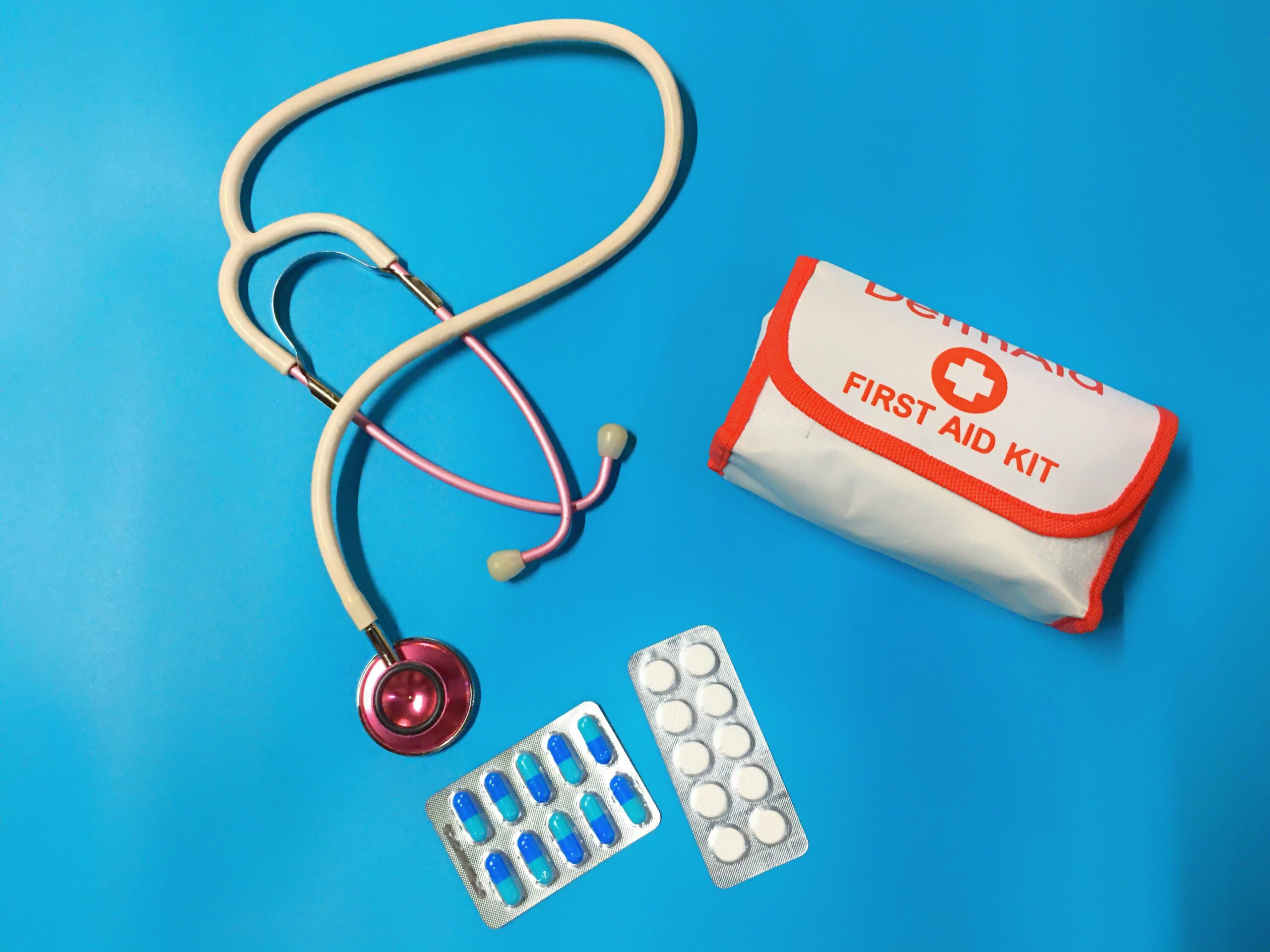Flexible Spending Accounts (FSAs) offer a tax-advantaged way to cover various healthcare expenses. With an FSA, you set aside a portion of your paycheck, pre-tax, to cover eligible medical, dental, and vision expenses. Understanding the breadth of FSA-eligible items can help you maximize your benefits. Here, we delve into some of the best FSA-eligible items, providing detailed product descriptions to help you make informed decisions about your healthcare spending.
Top Picks
Best FSA Eligible Items
1. Prescription Medications
Prescription medications are among the most straightforward and essential FSA-eligible expenses. These include antibiotics, antihistamines, and medications for chronic conditions such as diabetes, hypertension, and asthma. Each medication must be prescribed by a licensed healthcare provider, ensuring that they meet the necessary criteria for FSA eligibility. Prescriptions can be filled at any pharmacy, and you can use your FSA card to pay directly or submit receipts for reimbursement. The convenience of covering these critical expenses without the burden of taxes is a significant advantage for individuals managing long-term health conditions.
2. Over-the-Counter Medications
Recent changes to FSA regulations now allow for the reimbursement of over-the-counter (OTC) medications without a prescription. This includes items like pain relievers (ibuprofen, acetaminophen), cold and flu medications, allergy relief products, and digestive aids. The availability of these medications over the counter offers a convenient and cost-effective way to manage minor health issues and everyday ailments. Using FSA funds to stock up on these essentials can help reduce out-of-pocket expenses throughout the year, ensuring that you have necessary treatments readily available at home.
3. Medical Devices and Supplies
A wide range of medical devices and supplies are FSA-eligible, offering solutions for various health needs. Blood pressure monitors, for instance, are invaluable for individuals managing hypertension, allowing for regular monitoring and better health management. Glucose meters and test strips are essential for diabetics, enabling accurate tracking of blood sugar levels and more effective diabetes management. Thermometers, including traditional and infrared models, are critical for monitoring fevers and managing illnesses. First aid kits, which include bandages, antiseptic wipes, and other emergency supplies, are also eligible, providing peace of mind and preparedness for minor injuries.
4. Vision Care Products
Vision care is a significant component of FSA-eligible expenses, covering a range of products that support eye health. Prescription eyeglasses and sunglasses are fully covered, allowing you to purchase high-quality frames and lenses tailored to your vision needs. Contact lenses and related supplies, such as cleaning solutions and cases, are also eligible, ensuring that you can maintain clear vision and proper eye hygiene. Additionally, eye exams, which are crucial for detecting changes in vision and overall eye health, can be paid for with FSA funds, making it easier to stay on top of your vision care routine.
5. Dental Care Products
Dental care is another essential area where FSA funds can be utilized. Preventative and routine dental care, such as cleanings, X-rays, and fluoride treatments, are all FSA-eligible, promoting good oral health and preventing more serious dental issues down the line. Orthodontic treatments, including braces and retainers, are also covered, providing significant savings for families with children or adults requiring these services. Over-the-counter dental care products, such as toothbrushes, toothpaste, and mouthwash, can also be purchased with FSA funds, ensuring that daily oral hygiene needs are met without additional out-of-pocket expenses.
6. Hearing Aids and Accessories
Hearing aids and related accessories are crucial for individuals with hearing loss, and FSA funds can be used to cover these costs. This includes the hearing aids themselves, batteries, and maintenance supplies. Hearing aids are a significant investment, and using pre-tax dollars to purchase them can result in substantial savings. Regular maintenance and replacement of batteries are essential for the optimal functioning of hearing aids, and being able to use FSA funds for these ongoing expenses ensures that individuals can maintain their hearing health effectively.
7. Baby and Childcare Products
Parents can use FSA funds to cover a variety of healthcare expenses for their children. This includes over-the-counter medications such as fever reducers, cough syrups, and allergy medications, which are essential for managing common childhood illnesses. Additionally, products like thermometers, nasal aspirators, and teething relief items are eligible, ensuring that parents have the necessary tools to care for their children’s health. Breastfeeding supplies, including breast pumps and milk storage bags, are also covered, supporting new mothers in their breastfeeding journey.
8. Personal Care and Hygiene Products
Certain personal care and hygiene products are FSA-eligible, providing everyday health and wellness benefits. Sunscreen with an SPF of 15 or higher is covered, promoting skin health and protection from harmful UV rays. Menstrual care products, including tampons, pads, and menstrual cups, are also eligible, offering essential support for women’s health. Additionally, items such as orthotic insoles, which provide foot support and pain relief, are covered, ensuring that you can maintain comfort and mobility throughout the day.
9. Mental Health Services
Mental health care is an essential component of overall well-being, and FSA funds can be used to cover various related expenses. This includes therapy and counseling sessions with licensed mental health professionals, which are crucial for managing conditions such as anxiety, depression, and stress. Psychiatric care, including medication management, is also eligible. Additionally, certain mental health apps and online therapy platforms may qualify, providing convenient and accessible options for mental health support.
10. Alternative Therapies
Alternative therapies, such as acupuncture and chiropractic care, are increasingly recognized for their health benefits and are FSA-eligible. Acupuncture, which involves the insertion of thin needles into specific points on the body, can help manage pain, stress, and various medical conditions. Chiropractic care focuses on the diagnosis and treatment of musculoskeletal disorders, particularly those related to the spine, and can provide significant relief for back and neck pain. These therapies offer additional options for managing health and wellness, and using FSA funds to cover these costs can enhance your overall care regimen.
11. Physical Therapy and Rehabilitation
Physical therapy and rehabilitation services are crucial for recovering from injuries, surgeries, and managing chronic conditions. These services, provided by licensed physical therapists, are FSA-eligible and encompass a wide range of treatments aimed at restoring function, improving mobility, and reducing pain. Whether you’re recovering from an orthopedic surgery, managing arthritis, or rehabilitating after a sports injury, physical therapy can be a critical component of your healthcare plan. Utilizing FSA funds to cover these services can alleviate the financial burden and ensure you receive the necessary care for optimal recovery.
12. Prenatal and Postnatal Care
Pregnancy and childbirth bring specific healthcare needs that can be covered by FSA funds. Prenatal vitamins, which are essential for the health of both the mother and the developing baby, are eligible. Prenatal care visits, which include regular check-ups, ultrasounds, and other necessary medical services, can also be paid for with FSA funds. After childbirth, postnatal care items such as nursing pads, postpartum recovery garments, and lactation consulting services are eligible, supporting new mothers in their recovery and breastfeeding efforts.
13. Allergy and Asthma Treatments
Managing allergies and asthma requires various medications and devices, many of which are FSA-eligible. This includes prescription and over-the-counter allergy medications, such as antihistamines and nasal sprays. Asthma treatments, including inhalers, nebulizers, and peak flow meters, are also covered. These items are crucial for managing symptoms and preventing severe reactions, ensuring that individuals with allergies and asthma can maintain their health and well-being effectively.
14. Diabetes Management Supplies
For individuals with diabetes, managing the condition requires a range of supplies, all of which are FSA-eligible. Blood glucose meters, test strips, and lancets are essential for regular blood sugar monitoring. Insulin and insulin delivery devices, such as syringes and insulin pumps, are also covered. Additionally, items like glucose tablets, which help manage low blood sugar episodes, and diabetic socks, which provide additional foot care, are eligible. Utilizing FSA funds for these supplies can significantly reduce the financial burden of managing diabetes.
15. Smoking Cessation Programs
Smoking cessation programs and products are FSA-eligible, providing support for individuals looking to quit smoking. This includes nicotine replacement therapies such as patches, gum, and lozenges, which help manage withdrawal symptoms and reduce the urge to smoke. Prescription medications for smoking cessation are also covered. Additionally, counseling and support programs, which offer guidance and support throughout the quitting process, are eligible. Using FSA funds for these resources can make it easier and more affordable to quit smoking, promoting better health and reducing the risk of smoking-related diseases.
16. Sleep Aids and Sleep Health
Sleep is a critical component of overall health, and FSA funds can be used to cover various sleep aids and related products. Over-the-counter sleep aids, such as melatonin supplements, are eligible, providing support for individuals with sleep difficulties. Prescription sleep medications, which may be necessary for managing more severe sleep disorders, are also covered. Additionally, sleep-related devices such as CPAP machines and accessories, which are essential for individuals with sleep apnea, are eligible. These products support better sleep hygiene and overall health, and using FSA funds can reduce the financial burden of managing sleep disorders.
17. Fitness and Wellness Programs
Certain fitness and wellness programs, particularly those prescribed by a healthcare provider for a specific medical condition, can be FSA-eligible. This includes weight loss programs, smoking cessation programs, and fitness classes aimed at managing chronic conditions such as diabetes or heart disease. Using FSA funds for these programs can promote better health and prevent the progression of medical conditions, offering a proactive approach to healthcare.
18. Vaccinations and Immunizations
Vaccinations and immunizations are essential for preventing various diseases and are fully covered by FSA funds. This includes routine vaccinations such as flu shots, as well as other recommended immunizations for children and adults, including measles, mumps, rubella (MMR), tetanus, and HPV. Travel vaccines, which are necessary for international travel to certain regions, are also eligible. Utilizing FSA funds for vaccinations ensures that you and your family are protected against preventable diseases without incurring additional out-of-pocket expenses.
19. Diagnostic and Preventive Services
Various diagnostic and preventive services are FSA-eligible, promoting early detection and management of health conditions. This includes screenings such as mammograms, colonoscopies, and prostate exams, which are crucial for detecting cancers and other serious health issues at an early stage. Lab tests, including blood tests and urinalysis, are also covered, providing valuable information for diagnosing and managing health conditions. Using FSA funds for these services can encourage proactive healthcare, leading to better outcomes and reduced long-term healthcare costs.
20. Mobility Aids
Mobility aids, which assist individuals with movement and daily activities, are FSA-eligible. This includes items such as canes, walkers, wheelchairs, and crutches, which provide support and enhance mobility for individuals with injuries or chronic conditions affecting their movement. Additionally, accessories such as wheelchair cushions and walker glides are covered, ensuring comfort and ease of use. Using FSA funds for these aids can significantly improve quality of life and independence for individuals with mobility challenges.
21. Home Health Care
Home health care expenses, which support individuals with chronic conditions or those recovering from surgery, are FSA-eligible. This includes services provided by home health aides, who assist with daily activities such as bathing, dressing, and meal preparation. Medical equipment for home use, such as hospital beds, oxygen tanks, and mobility aids, is also covered. Utilizing FSA funds for home health care can provide necessary support and improve the quality of life for individuals requiring long-term care or recovery assistance.
22. Specialized Health Equipment
Certain specialized health equipment is FSA-eligible, offering targeted solutions for specific medical needs. This includes items such as breast pumps for nursing mothers, TENS units for pain management, and compression garments for individuals with circulation issues. These products address specific health concerns and provide relief and support for various conditions. Using FSA funds for specialized equipment ensures that individuals have access to the necessary tools for managing their health effectively.
23. Maternity and Family Planning
Maternity and family planning expenses are also eligible for FSA reimbursement. This includes prenatal vitamins, which support the health of both the mother and the developing baby, and breastfeeding supplies such as breast pumps and milk storage bags. Fertility treatments and family planning services, including IVF procedures and birth control, are also covered. Using FSA funds for these expenses can alleviate the financial burden associated with maternity and family planning, providing support for individuals and families during significant life events.
24. Protective Equipment
Personal protective equipment (PPE), which has become increasingly important, is FSA-eligible. This includes items such as face masks, hand sanitizers, and gloves, which protect against the spread of infectious diseases. These products are essential for maintaining personal and public health, particularly during outbreaks or in healthcare settings. Utilizing FSA funds for PPE ensures that individuals can access necessary protective equipment without additional financial strain.
25. Medical Alert Systems
Medical alert systems, which provide emergency assistance for individuals with health conditions, are FSA-eligible. These systems, including wearable devices and home-based alert units, can summon emergency services at the push of a button, offering peace of mind for individuals and their families. Using FSA funds for medical alert systems can provide critical support and enhance safety for individuals with conditions such as heart disease, epilepsy, or those at risk of falls.
What is FSA?
A Flexible Spending Account (FSA) is a special tax-advantaged account that allows individuals to set aside pre-tax dollars from their paycheck to cover eligible healthcare expenses. These expenses include medical, dental, and vision care, as well as prescription medications and certain over-the-counter products. FSAs are typically offered by employers as part of their benefits package and can significantly reduce taxable income, providing savings on essential healthcare costs. The funds must be used within the plan year or a specified grace period, encouraging timely and strategic spending on necessary health-related expenses.
How does FSA work?
A Flexible Spending Account (FSA) works by allowing employees to contribute a portion of their pre-tax earnings into an account designated for healthcare expenses. The contribution amount is decided at the beginning of the plan year and deducted from each paycheck. These funds can be used to pay for eligible medical, dental, and vision expenses. Employees access the money via an FSA debit card or by submitting receipts for reimbursement. It’s a “use-it-or-lose-it” account, meaning funds must be used within the plan year or specified grace period, or they are forfeited, encouraging timely healthcare spending.
Why do I have to spend my FSA dollars by a certain date?
You must spend your FSA dollars before a certain date because FSAs are “use-it-or-lose-it” accounts. This rule is designed to encourage timely spending on healthcare expenses within the plan year. Any unused funds at the end of the year are forfeited, meaning you lose the money if it’s not spent. This policy helps prevent long-term accumulation of funds and ensures that the tax benefits associated with FSAs are used for their intended purpose—covering healthcare costs in the short term. Some plans offer a grace period or allow a small amount to carry over to the next year, providing a bit more flexibility.
The bottom line on the Best FSA Eligible Items
Understanding the range of FSA-eligible items allows you to maximize the benefits of your Flexible Spending Account. From essential medications and medical supplies to preventive services and specialized equipment, these items support various aspects of health and well-being. By strategically utilizing FSA funds, you can reduce out-of-pocket healthcare expenses and ensure that you have access to necessary products and services throughout the year. Whether managing chronic conditions, maintaining everyday health, or planning for family and personal care, FSA-eligible items provide valuable support for comprehensive healthcare management.







